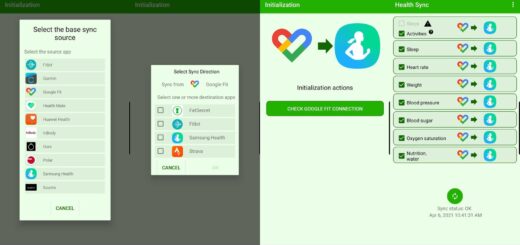Is a Degree Necessary for Digital Marketing Careers?
In today’s digital age, the field of marketing is rapidly evolving to encompass a wide range of digital channels and strategies. Aspiring professionals in the field often wonder whether a degree is necessary to succeed in digital marketing. The answer, as it turns out, is not always straightforward.
While a degree in marketing can certainly provide a solid foundation and valuable knowledge, many employers in the digital marketing industry prioritize practical skills and experience over formal education. In fact, multiple sources indicate that a specific degree in digital marketing is rarely a requirement for entry-level positions.
Instead, employers tend to value individuals who possess a strong set of marketing abilities and proven skills, regardless of whether these skills were acquired through formal education or real-world experience. Degrees in related fields such as marketing, business, advertising, psychology, English, communications, and IT can be beneficial, as they offer cross-over skills and knowledge that can be applied effectively in digital marketing.
To determine whether a degree is necessary for your digital marketing career, it’s important to assess your own skills and qualifications, as well as the specific requirements of the job you are pursuing. By emphasizing your practical skills, gaining relevant experience, obtaining certifications, and building a strong portfolio, you can increase your chances of success in the field, even without a degree specifically in digital marketing.
So, while a degree can certainly provide advantages, it is not always a requirement for digital marketing careers. What matters most is the ability to effectively apply marketing principles, stay up to date with industry trends, and deliver results in the ever-changing digital landscape.
Key Takeaways:
- A degree in digital marketing is not always necessary for a career in the field. Employers value practical skills and experience more than formal education.
- Degrees in related fields such as marketing, business, advertising, psychology, English, communications, and IT can provide a strong foundation for a digital marketing career.
- Key skills for digital marketing include strong writing ability, communication skills, knowledge of consumer behavior, analytical skills, proficiency in social media and blogging platforms, and web design or development knowledge.
- Obtaining relevant certifications, gaining practical experience, networking, and building a strong portfolio can help you succeed in the digital marketing industry.
- While a degree can offer advantages, practical skills, certifications, and a strong portfolio often outweigh the importance of a specific degree in digital marketing.
Degrees that Can Lead to a Career in Digital Marketing
Various degrees can provide a strong foundation for a career in digital marketing. Some degrees that are particularly relevant include marketing, business, advertising, psychology, English, communications, and IT. These degrees offer cross-over skills and knowledge that can be applied to different aspects of digital marketing. For example, a degree in creative writing or journalism can make someone well-suited for content marketing, while a background in web design or development can be beneficial for SEO or PPC.
However, it’s important to note that employers often prioritize skills, experience, and a proven track record over a specific degree. While these degrees can provide a solid educational background, it’s essential to supplement formal education with practical skills and hands-on experience in the digital marketing field.
Required Skills for Digital Marketing Careers
Digital marketing is a multifaceted field that demands a diverse range of skills. To excel in this industry, digital marketers need to possess a strong set of abilities that enable them to navigate the ever-evolving digital landscape and effectively promote businesses online.
Some of the key skills that employers look for in digital marketers include:
- Strong Writing Ability: Proficiency in writing persuasive and engaging content is crucial in digital marketing. From crafting compelling ad copy to creating engaging social media posts, excellent writing skills are highly valued.
- Good Communication Skills: Effective communication is essential for collaboration with clients, team members, and target audiences. Digital marketers must be able to articulate their ideas clearly and tailor their messages to various channels and platforms.
- Knowledge of Consumer Behavior and Buyer Psychology: Understanding consumer behavior is critical for developing effective marketing strategies. Digital marketers must possess insights into consumer motivations, preferences, and decision-making processes to optimize campaigns.
- Analytical and Numerical Abilities: Digital marketing relies heavily on data analysis and measurement. Marketers should be comfortable interpreting data, making data-driven decisions, and analyzing campaign performance to optimize results.
- Proficiency in Social Media and Blogging Platforms: Social media and blogging play a significant role in digital marketing. Familiarity with major social media platforms and blogging tools is essential for creating and distributing engaging content effectively.
- Graphic Design Skills: Visual content is highly valuable in digital marketing. Proficiency in graphic design software and the ability to create visually appealing and cohesive designs is advantageous for enhancing content strategy.
- Web Design or Development Knowledge: A solid understanding of web design and coding languages, such as HTML and CSS, can offer a competitive edge in digital marketing. This knowledge enables marketers to optimize websites for user experience and implement various marketing tactics effectively.
While a degree in marketing may provide a well-rounded education in these areas, practical skills and experience hold significant weight in the industry. It is entirely possible to succeed in digital marketing without a degree, as long as one can demonstrate these essential skills through hands-on experience and a strong portfolio.
Tips for Getting a Digital Marketing Job Without a Degree
While a degree in marketing can be advantageous, practical skills and experience are often valued more by employers in the digital marketing industry. To improve your chances of getting a digital marketing job without a degree, consider the following tips:
-
Gain experience: Start by gaining experience through internships, personal projects, or by helping friends and family with their digital marketing needs. This hands-on experience will not only enhance your skills but also demonstrate your dedication and commitment to the field.
-
Network: Connect with professionals in the digital marketing industry. Attend industry events, join relevant online communities, and actively engage with professionals on platforms like LinkedIn and Twitter. Networking can open doors to potential job opportunities and help you stay updated on the latest trends.
-
Stay updated: The digital marketing landscape is constantly evolving. Stay updated on the latest trends and industry influencers by following them on social media, subscribing to industry newsletters, and participating in relevant discussions. This will showcase your knowledge and passion for the field.
-
Obtain certifications: While a degree may not be necessary, certifications can demonstrate your expertise and commitment to continuous learning. Consider obtaining certifications from reputable organizations like Google and HubSpot to showcase your knowledge in specific areas of digital marketing.
-
Develop a strong portfolio: Build a portfolio that showcases your skills and accomplishments. Include examples of your work, successful campaigns you have executed, and any quantifiable results you have achieved. A strong portfolio will provide tangible evidence of your abilities.
-
Demonstrate your passion: During job interviews, showcase your knowledge of the industry and your genuine passion for digital marketing. Employers value candidates who are enthusiastic and self-motivated, as these qualities contribute to long-term success in the field.
By following these tips, you can increase your chances of securing a digital marketing job without a degree. Remember, employers in the digital marketing industry often prioritize practical skills, experience, and a proven track record over formal education. Focus on demonstrating your abilities, staying updated on industry trends, and continuously expanding your knowledge to succeed in this dynamic field.
Benefits of Having a Degree in Digital Marketing
While a degree in digital marketing is not always necessary, there are benefits to obtaining one. Here are some potential advantages that having a degree in digital marketing can offer:
- A Well-Rounded Education: Pursuing a degree in digital marketing provides you with a comprehensive understanding of marketing principles. This well-rounded education equips you with a solid foundation and knowledge of the various aspects of the field, including consumer behavior, market research, branding, and advertising strategies.
- Networking and Internship Opportunities: Through your degree program, you can gain access to valuable networking and internship opportunities. These experiences allow you to build connections with industry professionals, learn from their expertise, and potentially secure internships that provide hands-on experience in digital marketing.
- Exposure to Various Tactics and Strategies: A degree in digital marketing exposes you to a wide array of digital marketing tactics and strategies. From search engine optimization (SEO) to social media marketing, content marketing, and email marketing, you will gain a comprehensive understanding of the different approaches and tools used in the industry.
- Edge in Job Competition: In a competitive job market, having a degree in digital marketing can give you an edge, especially for entry-level positions. Employers may view a degree as a demonstration of your commitment, dedication, and ability to acquire knowledge in the field.
If you are considering a career in digital marketing, obtaining a degree can offer these advantages. However, it’s important to note that practical skills, experience, certifications, and a strong portfolio also play crucial roles in demonstrating your abilities and standing out in the industry.
Alternative Paths to a Career in Digital Marketing
While obtaining a degree in digital marketing can be beneficial, it is not the only path to a successful career in the field. There are alternative routes that individuals can take to establish themselves as digital marketing professionals. By focusing on gaining practical experience, acquiring relevant certifications, networking with industry experts, staying updated on trends, and building a strong portfolio, aspiring digital marketers can pave their own way to success.
Gaining Hands-on Experience
One alternative path to a career in digital marketing is gaining hands-on experience through internships, personal projects, or freelancing. These opportunities allow individuals to apply their knowledge, develop new skills, and build a portfolio of work that demonstrates their capabilities to potential employers.
Acquiring Relevant Certifications
Obtaining certifications in specific digital marketing areas can also be a valuable alternative path. Certifications from reputable organizations, such as Google and HubSpot, provide tangible evidence of expertise in areas like SEO, social media marketing, content marketing, and email marketing. These certifications not only enhance one’s skills but also showcase a commitment to continuous learning and professional development.
Networking with Professionals
Networking with professionals in the digital marketing industry is another alternative path to explore. Attending industry events, joining relevant online communities, and connecting with experts on platforms like LinkedIn can help individuals expand their professional network. Networking provides opportunities for mentorship, collaboration, and gaining insights into the latest trends and practices in the field.
Staying Updated on Industry Trends
Keeping up with the ever-evolving digital marketing landscape is essential for success. By staying updated on industry trends, individuals can ensure they possess the knowledge and skills necessary to thrive in their careers. Following influential figures, subscribing to industry blogs and newsletters, and participating in online discussions are effective ways to stay informed and stay competitive.
Building a Strong Portfolio
A strong portfolio is crucial in showcasing one’s abilities and attracting potential employers or clients. By including samples of successful campaigns, projects, and achievements, individuals can demonstrate their skills and the results they have achieved. A well-designed and comprehensive portfolio adds credibility and provides tangible evidence of competence and creativity in digital marketing.
“Alternative paths, such as gaining hands-on experience and acquiring relevant certifications, can be just as effective in building a successful digital marketing career without a degree.”
Ultimately, there are multiple paths to pursuing a career in digital marketing. While a degree can provide a solid foundation, alternative routes that focus on practical experience, certifications, networking, and portfolio building can lead to success. Employers in the industry value skills, results, and a passion for digital marketing, making it possible for individuals to forge their own unique path and thrive in this dynamic and ever-changing field.

| Alternative Paths | Benefits |
|---|---|
| Gaining hands-on experience | – Development of practical skills – Building a strong portfolio – Demonstrating real-world results |
| Acquiring relevant certifications | – Validation of expertise – Commitment to continuous learning – Differentiation in job applications |
| Networking with professionals | – Industry insights and trends – Mentorship opportunities – Access to potential job openings |
| Staying updated on industry trends | – Remaining competitive – Adapting to new technologies – Identifying new opportunities |
| Building a strong portfolio | – Showcasing skills and achievements – Attracting potential employers and clients – Enhancing credibility |
Employers’ Perspective on Degrees and Certifications in Digital Marketing
When it comes to hiring digital marketers, employers in the industry prioritize practical skills, experience, and a proven track record over formal education. While some employers may have a preference for candidates with a degree in digital marketing, the majority value certifications and hands-on experience more.
Certifications from reputable organizations carry weight in the digital marketing industry as they demonstrate specific skills and expertise. They provide tangible evidence of an individual’s abilities in areas such as SEO, PPC, content marketing, social media management, and more. Employers view these certifications as a strong indication of a candidate’s commitment to staying updated with the latest industry trends and knowledge.
“Digital marketing certifications provide candidates with valuable expertise that can supplement or even surpass the knowledge gained through a degree. They demonstrate a practical understanding of the tools, platforms, and techniques used in the industry.”
Practical experience is highly valued by employers. Internships, personal projects, and real-world campaigns allow candidates to showcase their ability to execute successful digital marketing strategies. This hands-on experience provides evidence of an individual’s skills and their ability to deliver results.
Key Takeaways:
- Employers prioritize practical skills, experience, and a proven track record over a specific degree in digital marketing.
- Digital marketing certifications from reputable organizations are highly valued and demonstrate specific expertise.
- Practical experience through internships, personal projects, or real-world campaigns is essential to showcase the ability to deliver results.
Overall, employers in the digital marketing industry are looking for candidates who can confidently demonstrate their skills and deliver results. While a degree in digital marketing may be preferred by some employers, certifications and practical experience carry significant weight in the hiring process.

Note: Image above depicts professionals discussing digital marketing strategies.
Future Trends in Digital Marketing Careers
The field of digital marketing is constantly evolving, and staying ahead of future trends is essential for success in this industry. As technology continues to advance, digital marketers must adapt and embrace new strategies to effectively reach their target audiences and drive results. Here are some of the emerging trends that are shaping the future of digital marketing careers:
- Artificial Intelligence: AI is revolutionizing the way digital marketers analyze data, automate processes, and personalize user experiences. Integrating AI-powered tools and technologies can help marketers optimize campaign performance, deliver targeted messaging, and enhance customer interactions.
- Voice Search Optimization: With the rise of voice assistants like Siri and Alexa, optimizing content for voice search is becoming increasingly important. Digital marketers need to understand the intricacies of voice search queries and optimize their content to appear in voice search results, which often differ from traditional text-based searches.
- Personalized Marketing Automation: Consumers expect personalized experiences, and marketing automation tools are making it easier for digital marketers to deliver tailored content to individual users at scale. Leveraging customer data and behavior, marketers can automate personalized email campaigns, dynamic website content, and targeted advertising.
- Video Marketing: Video content continues to dominate the digital landscape, and it is projected to play an even more significant role in the future. Incorporating video marketing strategies, such as creating engaging video ads, hosting webinars, and sharing branded content on platforms like YouTube and TikTok, can help businesses capture the attention of their target audiences.
- Influencer Marketing: Influencer marketing is a powerful way to connect with consumers and build brand awareness. Leveraging influencers who have a strong online presence and a relevant following can help marketers reach their target audience in a more authentic and influential way.
- Creating Engaging and Interactive Content: To stand out in a crowded digital landscape, marketers must focus on creating compelling and interactive content that captivates their audience. This includes interactive quizzes, polls, surveys, augmented reality experiences, and other forms of immersive content that encourage user engagement and participation.
By staying informed about these emerging trends and continuously upgrading their skills, digital marketers can position themselves for success in the ever-evolving field of digital marketing. Embracing new technologies, leveraging data-driven insights, and delivering personalized and engaging experiences will be key to driving meaningful results in the future.
Conclusion
In conclusion, a degree in digital marketing can provide a solid foundation and potentially offer advantages in the job market. However, it is not always necessary to succeed in the field. The digital marketing industry values practical skills, experience, certifications, and a strong portfolio that demonstrate one’s abilities to deliver results.
Employers prioritize individuals who can stay up-to-date with industry trends and technologies, and who continuously develop relevant skills. While a degree can offer a well-rounded education in marketing principles, it is not the sole determining factor for success in digital marketing.
By focusing on developing practical skills, gaining experience through internships or personal projects, obtaining relevant certifications, and showcasing a strong portfolio, anyone with a passion for digital marketing can forge a successful career in this dynamic industry. The key lies in demonstrating the ability to keep up with the rapidly evolving landscape of digital marketing and delivering impactful results.
FAQ
Is a Degree Necessary for Digital Marketing Careers?
A degree in digital marketing is not always necessary to pursue a career in the field. While certain degrees can be beneficial, employers often prioritize practical skills and experience over a specific degree.
What Degrees Can Lead to a Career in Digital Marketing?
Degrees such as marketing, business, advertising, psychology, English, communications, and IT can provide a strong foundation for a career in digital marketing.
What Skills Are Required for Digital Marketing Careers?
Employers look for skills such as strong writing ability, good communication skills, knowledge of consumer behavior and buyer psychology, analytical and numerical abilities, proficiency in social media and blogging platforms, graphic design skills, and web design or development knowledge.
Can You Succeed in Digital Marketing Without a Degree?
Yes, it is possible to succeed in digital marketing without a degree if you can demonstrate essential skills through experience and a strong portfolio.
What Tips Can Help me Get a Digital Marketing Job Without a Degree?
Gain experience through internships or personal projects, network with professionals in the industry, stay updated on industry trends, obtain relevant certifications, and build a strong portfolio.
What Are the Benefits of Having a Degree in Digital Marketing?
Some potential benefits of having a degree in digital marketing include a more well-rounded education in marketing principles, access to networking and internship opportunities, exposure to a wide range of digital marketing tactics and strategies, and a potential edge in job competition for entry-level positions.
What Are the Alternative Paths to a Career in Digital Marketing?
Alternative paths to a career in digital marketing include gaining hands-on experience through internships or personal projects, acquiring relevant certifications, networking with professionals in the industry, staying updated on industry trends, and building a strong portfolio.
What is the Employers’ Perspective on Degrees and Certifications in Digital Marketing?
While some employers may prefer candidates with a degree in digital marketing, many value certifications and hands-on experience more. Employers are looking for candidates who can confidently demonstrate their skills and deliver results in the field.
What Are the Future Trends in Digital Marketing Careers?
Some emerging trends in digital marketing careers include the increased use of artificial intelligence, voice search optimization, personalized marketing automation, video marketing, influencer marketing, and a focus on creating engaging and interactive content.
















It's great that you talked about how business insurance can provide financial protection against unexpected events and help ensure the…
I like that you mentioned how business insurance is essential for protecting your bottom line and the long-term viability of…